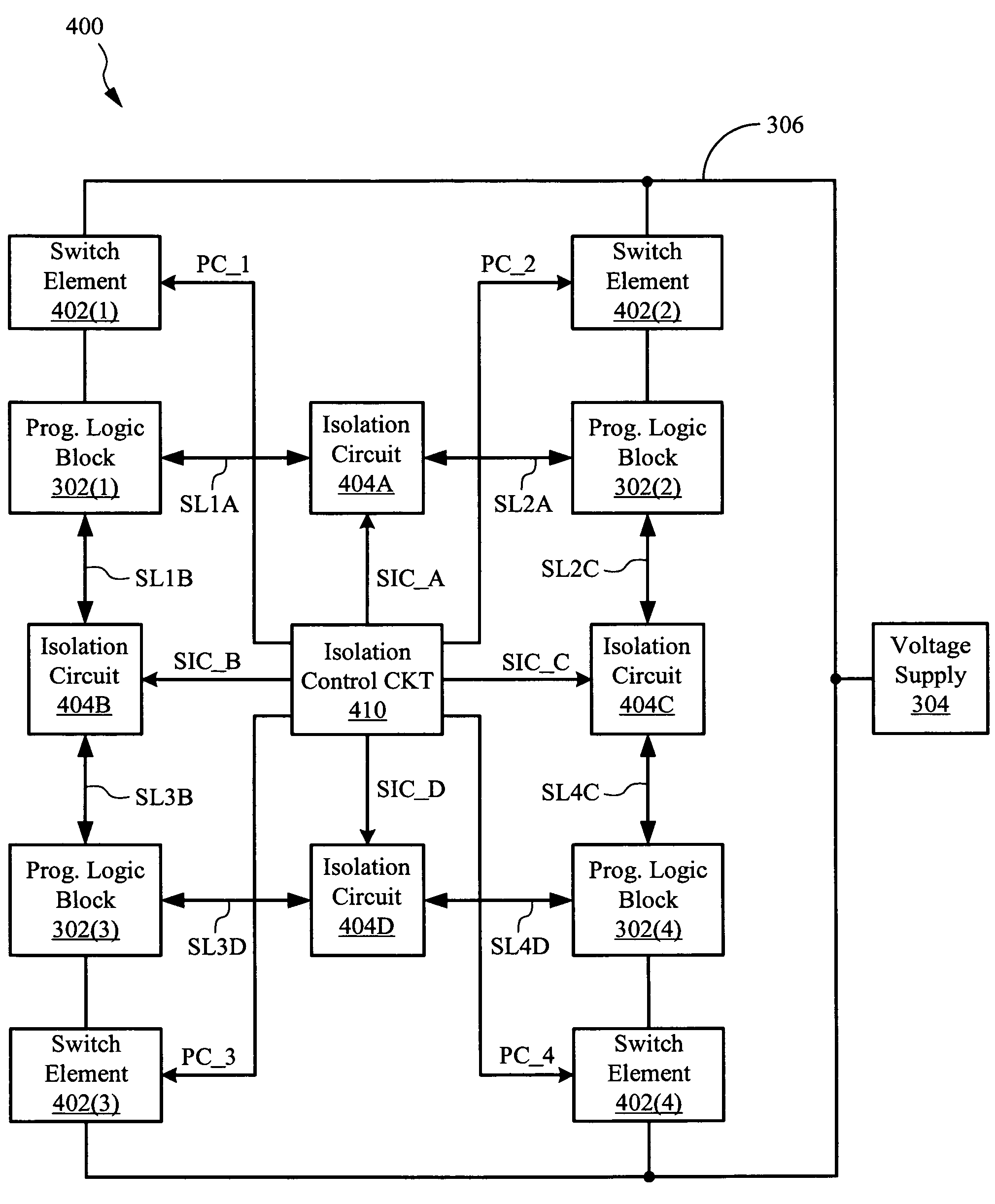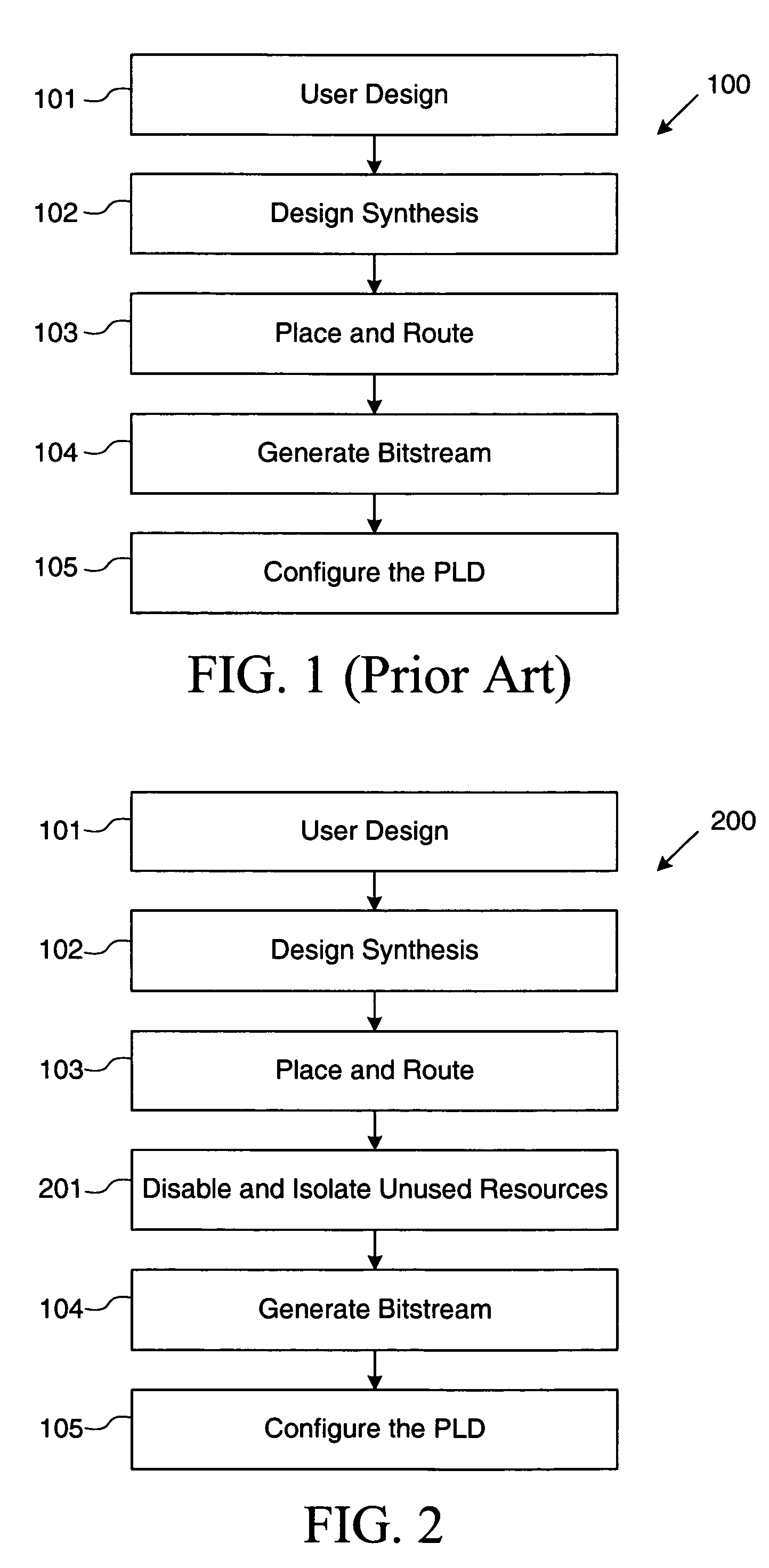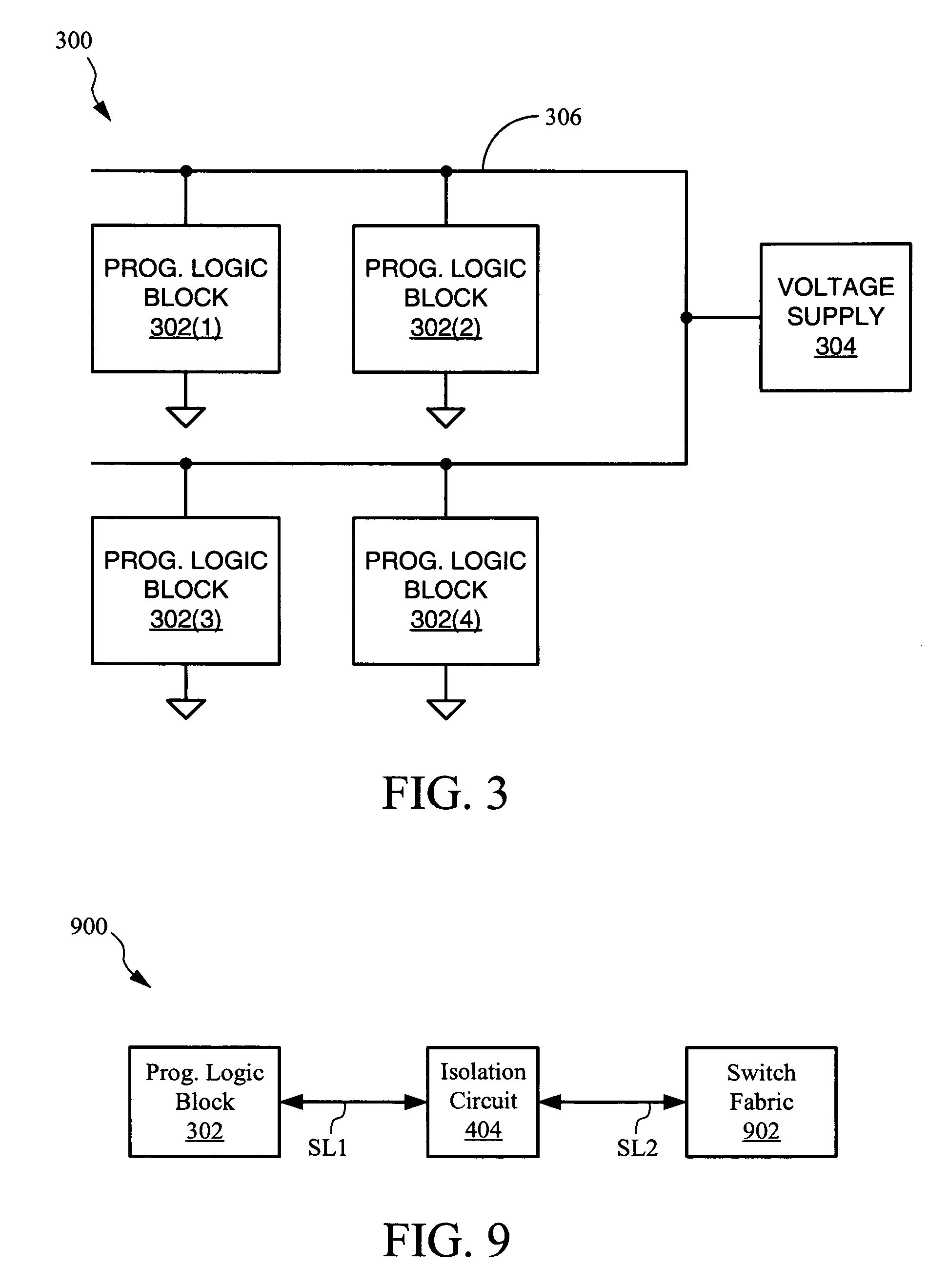Low power zones for programmable logic devices
a programmable logic and low power zone technology, applied in the field of integrated circuit (ic) device power supply distribution, can solve the problems of unused resources consuming static power, fpga devices typically exhibit greater static power consumption than dedicated logic devices,
- Summary
- Abstract
- Description
- Claims
- Application Information
AI Technical Summary
Benefits of technology
Problems solved by technology
Method used
Image
Examples
Embodiment Construction
[0025]Embodiments of the present invention are described below in the context of an exemplary PLD architecture for simplicity only. It is to be understood that present embodiments are equally applicable to other PLD architectures such as FPGAs and complex PLDs, and to other types of integrated circuits including, for example, application-specific integrated circuit (ASIC) devices. In the following description, for purposes of explanation, specific nomenclature is set forth to provide a thorough understanding of the present invention. In other instances, well-known circuits and devices are shown in block diagram form to avoid obscuring the present invention unnecessarily. Further, the logic states of various signals described herein are exemplary and therefore may be reversed or otherwise modified as generally known in the art. Additionally, the interconnection between circuit elements or blocks may be shown as buses or as single signal lines. Each of the buses may alternatively be a...
PUM
 Login to View More
Login to View More Abstract
Description
Claims
Application Information
 Login to View More
Login to View More - R&D
- Intellectual Property
- Life Sciences
- Materials
- Tech Scout
- Unparalleled Data Quality
- Higher Quality Content
- 60% Fewer Hallucinations
Browse by: Latest US Patents, China's latest patents, Technical Efficacy Thesaurus, Application Domain, Technology Topic, Popular Technical Reports.
© 2025 PatSnap. All rights reserved.Legal|Privacy policy|Modern Slavery Act Transparency Statement|Sitemap|About US| Contact US: help@patsnap.com



